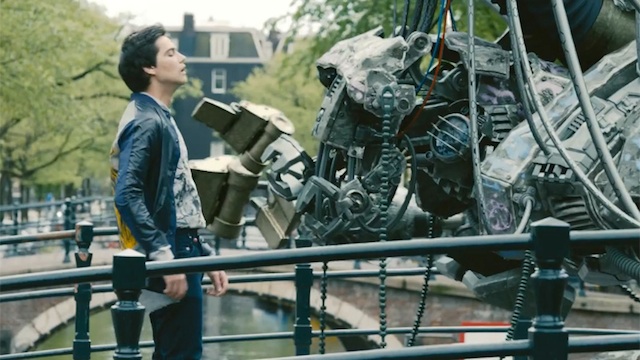Tears of Steel is a real treat. With visual effects so tasty you’ll be drooling within seconds and a gripping yet heartfelt sci-fi storyline all set against the backdrop of one of the world’s most handsome cities, Amsterdam, this is a short film to treasure.
The film’s triumphs are more than enough to compensate for its small flaws, including occasionally wooden acting and the quaint yet jarring anachronisms such as 21st century motor cars in a laser gun and rocket ship 22nd century universe.
But, what makes Tears of Steel extra special, on top of the exquisite storyline and CGI animation, are the values and community spirit that went into its production. All computer effects in the film were modelled and animated using Blender, a suite of open-source 3D content creation tools. As open source software, Blender is created by a community of volunteer programmers, just like the Firefox web browser, the LibreOffice word processor, and the Ubuntu operating system. Like all open source software Blender is, and always will be, 100% free to download, use and share.
This is the second Blender community film we’ve featured, after Sintel, (directed by Colin Levy, who recently surprised us with his student film The Secret Number) and the fourth effort overall. The aim of these films is to showcase what’s possible with the software, create positive PR for Blender, and to stimulate Blender’s coders to develop advanced features. On the first two counts at least, Tears of Steel does a stellar job. On the third, as a non-Blender user, I’m unable to comment.
In addition to being created on open source software, Tears of Steel was produced according to open source values. The film was financed with crowdfunding from Blender users, and everything created for the film, including all graphics and the film itself, are free to use and distributed under a Creative Commons Attribution license (that’s a type of copyright that means it’s free to share and adapt).
If Tears of Steel is a sign of what’s to come, I’m looking forward to more films produced the crowdfunded, open source way.

 David Masters
David Masters